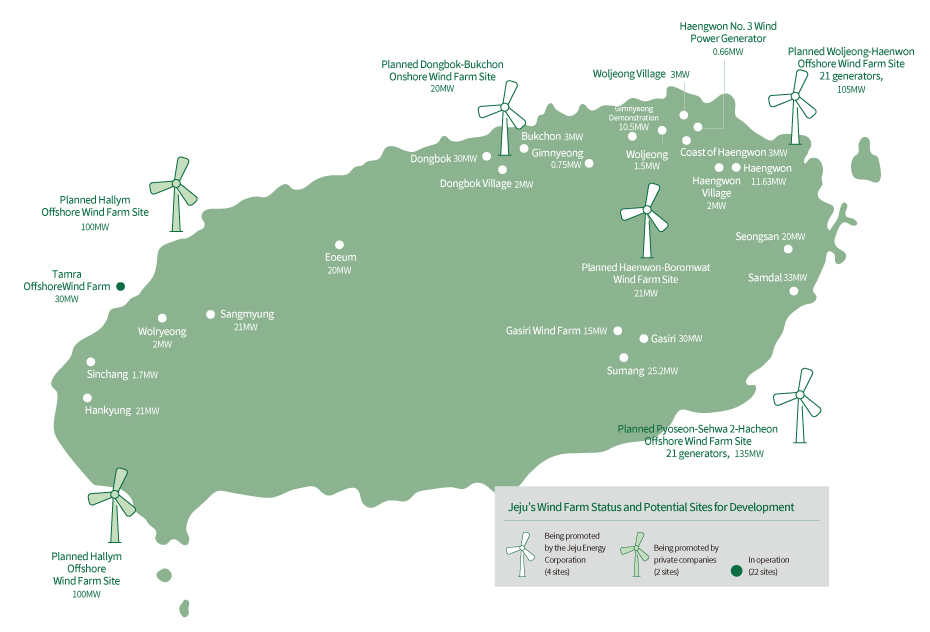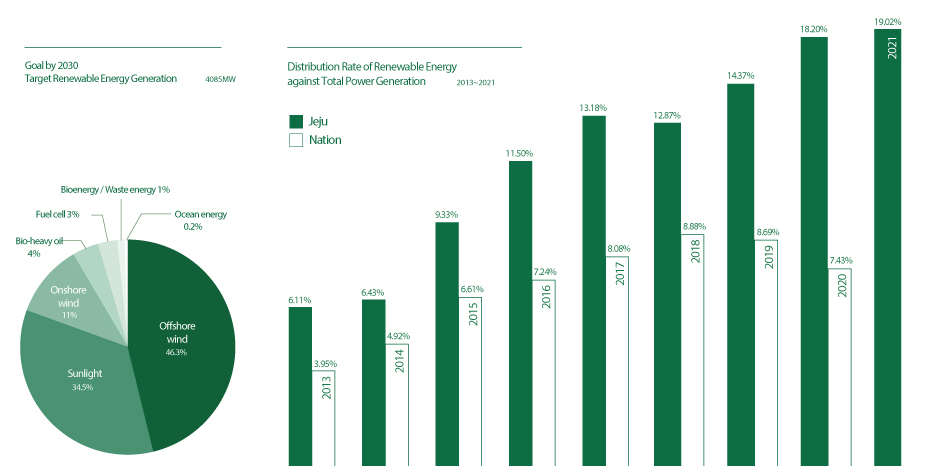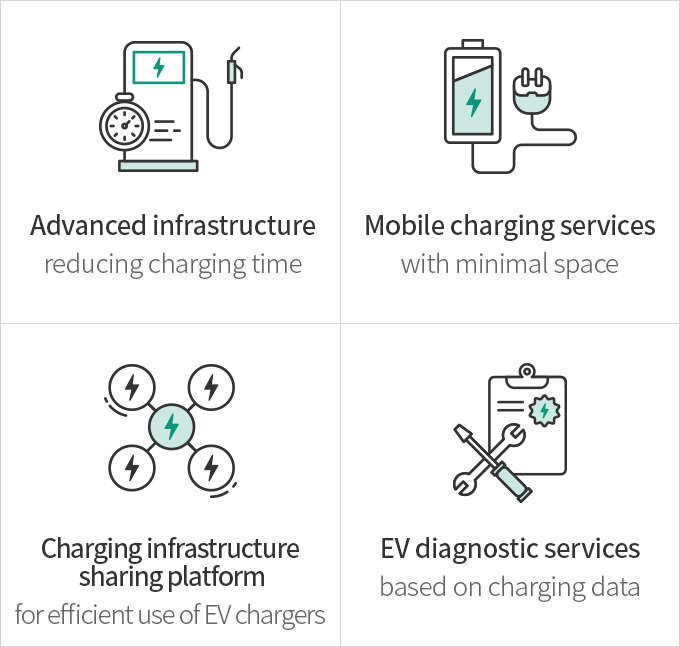Green Energy
- Home
- Investment Environment
- Promising Industries
- Green Energy
Carbon Free Island 2030
The Paris Agreement, which details the international community’s joint response to the climate crisis, was signed in 2015. About 3 year before that, in 2012, Jeju announced the “Carbon Free Island (CFI)” vision.
4 Policy Goals to Achieve the Carbon Neutrality 2030
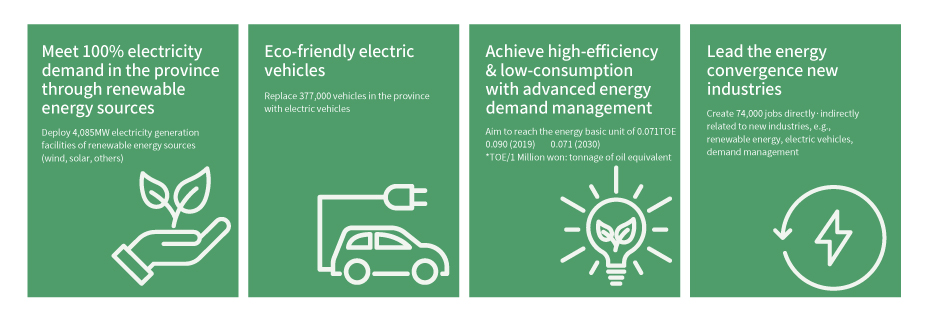
CFI 2030 Achievements: : Jeju as the Vanguard of Carbon Neutrality in Korea
- Highest share of renewable energy generation ratio in Korea, reaching 19.2% (as of 2022)
- Over 39,000 EVs in operation, marking the first instance in Korea of EVs constituting over 10% of vehicles in operation.
- Laying the groundwork for industries utilizing used EV batteries.
- Establishment of Jeju Energy Corporation and Jeju University’s Wind Power Graduate School to support industrialization and human resource development.
- Received the P4G (Partnering For Green Growth and the Global Goals 2030) Best Partnership Award in Energy at COP26 in 2021.
No.1 Electric Vehicle City
Jeju holds the title of the top electric vehicle city in Korea. Currently, approximately 9.6% of vehicles on the island are electric, with this percentage projected to rise even higher in the future.
No.1 Electric Vehicle City



- Distribution rate of electric vehicles and chargers/ installation of electric vehicle chargers per capita
- Ratio of electric vehicles in Jeju (2.10% nationwide) - 9.59%
- Domestic electric vehicles’ market dominance in Jeju - 7.22%
- Number of electric vehicle chargers (7,993 open-type units)- 26,592
- Number of electric vehicles in Jeju (543,900 vehicles nationwide) - 39,535

Jeju, Global Hydrogen Hub
Spearheading Korea’s Carbon Neutrality with Renewable Energy Transition and Green Hydrogen Focus.
Jeju Green Hydrogen
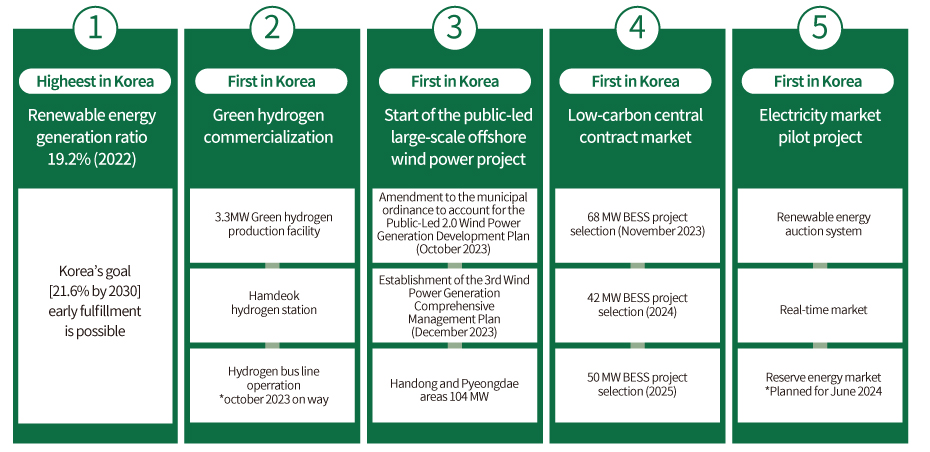

Commercialization and Expansion
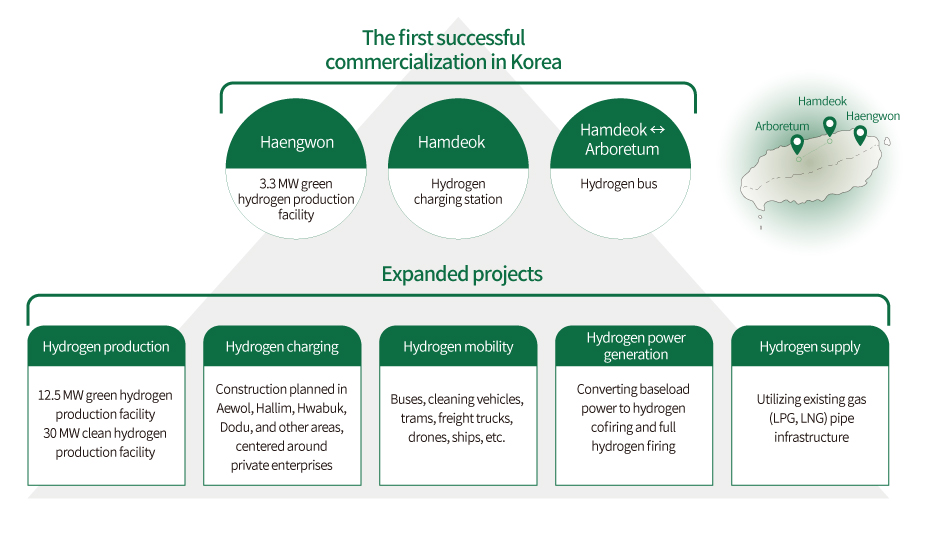

Leading the renewable energy industry, Wind Farm Sector
Jeju, renowned for its brisk winds averaging 7 m/s, boasts abundant wind resources. Particularly favorable offshore wind conditions make Jeju an ideal location for wind power generation. Wind power, propelled by Jeju’s consistent winds and surrounding seas, stands as the cornerstone of the island’s renewable energy sector and a pivotal driver of future growth.
Jeju’s Wind Farm Status and Potential Sites for Development
